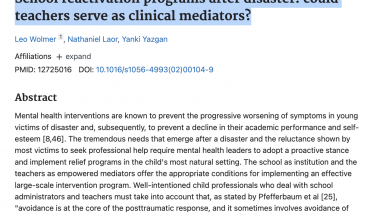Abstract
Background: Decision-making in Obsessive Compulsive Disorder has typically been investigated in the
adult population.Computational approaches have recently started to get integrated into these studies.
However, decision-making research in pediatric OCD populations is scarce.
Methods: We investigated latent decision processes in 21 medication-free pediatric OCD patients and 23
healthy control participants.We hypothesized that OCD patients would be more cautious and less efficient
in evidence accumulation than controls in a two alternative forced choice (2AFC) task.
Results: Pediatric OCD patients were less efficient than controls in accumulating perceptual evidence and
showed a tendency to be more cautious. In comparison to post-correct decisions, OCD patients increased
decision thresholds after erroneous decisions, whereas healthy controls decreased decision thresholds.
These changes were coupled with weaker evidence accumulation after errors in both groups.
Limitations: The small sample size limited the power of the study.
Conclusions: Our results demonstrate poorer decision-making performance in pediatric OCD patients at
the level of latent processes, specifically in terms of evidence accumulation.
Keywords: Decision making, Hierarchical Drift Diffusion Model, Obsessive Compulsive Disorder. Children

